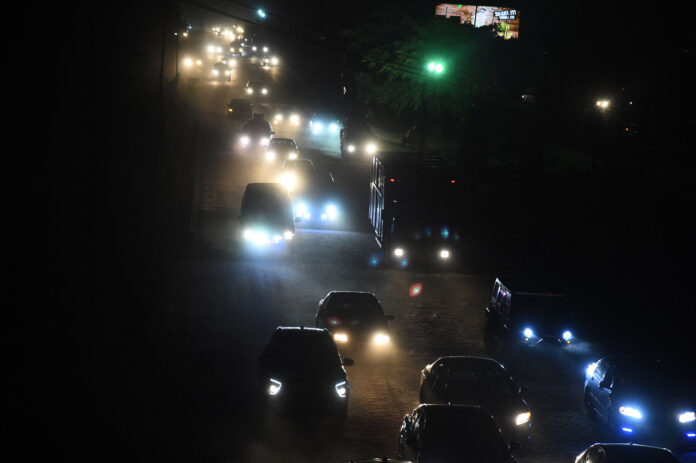Nigeria In Darkness Again As National Grid Collapses
The Transmission Company of Nigeria, TCN, has recorded its second electricity system collapse in 2024.
The incident scuttled the work of the electricity companies, DisCos, across the country.
In a notice to its customers, the management of Eko Electricity Distribution Company, EKEDC, stated: “Kindly be informed there was a system collapse at 16.28 hours (4:28 p.m.), which has resulted in a loss of power supply across our network.
“We are currently working with our partners as we hope for speedy restoration of the grid. We will keep you updated as soon as the power supply is restored. Kindly bear with us.”
Checks indicated that there was no power supply in many parts of the nation. This has compelled many businesses and households to generate their independent power at higher costs.
Also, the spokesperson of TCN, Mrs. Ndid Mba, confirmed the development.
She said: “There was a system collapse. But we have commenced recovery and have restored supply in Benin, Abuja and some other parts of the nation.”
In 2023, Nigerians experienced at least three nationwide blackouts. These were on September 14, 19 and December 11.
Meanwhile, Minister of Power, Adebayo Adelabu, noted the frequent collapse as a source of worry. He begged Nigerians to be patient with the government over the challenges facing the country’s power sector.
Adelabu said this while expressing concerns over the poor electricity supply situation in the country caused by numerous issues, including outstanding subsidy debts.
On his part, the Chief Executive Officer, Kodion Energy, Mr. Joshua Okorie, called for the breakup of the national power grid. He suggested breaking it into micro-grid systems along state lines.
He said: “It is easier to run a micro-grid system or smart grid that ends within a state, with the capacity and infrastructure to evacuate excess power to other states.
“Nigeria will never work with a national grid. It will never work in a 100 years from now if that’s the same case. It will never work”.
The minister pointed out that the Nigerian grid was outdated with decaying infrastructure built under British rule.
According to him, what was needed to improve electricity was “a smart 21st-century grid system”.
He observed that what has happened in Aba, Abia State where Geometric Power Limited has built its system to power the industrial city was a good model for the country.
Okorie explained Nigeria has over 76 percent of rural Nigerians lacking access to electricity and with an estimated 90 million people nationwide living without power.
However, he said, these numbers mean the country has a huge potential, especially in the renewable energy sector.
“But amidst these challenges lies an opportunity —a chance for Nigeria to harness its abundant solar resources and leapfrog into a future powered by clean energy,” the minister added.





